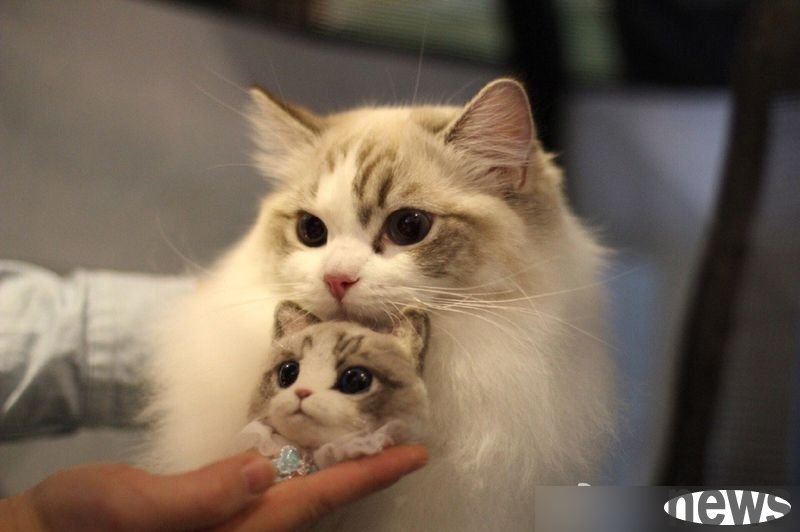A new study shows that during the epidemic, humans had more time to pet cats, making many cats more friendly. This comes as a surprise to some people, who expect their cats to be aloof.

Many of us know how precious pets are during the stress of the pandemic and lockdown. Research has backed this up, showing that pets provide stress relief and reduce feelings of loneliness, regardless of their species.
"I have two rescue cats - one of them is very timid and afraid of people, but now that I am home every day, he has adapted to my caressing. "One study participant said.
A team led by the Universities of York and Lincoln in the UK surveyed 5,323 people with companion animals, including horses, reptiles, birds and fish, as well as cats and dogs in general, to understand how dramatic changes in human living habits have affected companion animals.
More than 65% of participants reported behavioral changes in their pets.
Overall, many owners report that their companion animals have become calmer, but of all species, dogs show the most negative changes.
One pet owner explained:"My dog has become more needy and howls if I leave the house without him, even if it's just to do some gardening work, he needs to be able to see me. It will be a very difficult time for me to go to work. "
About 10% of dog, cat and horse owners noticed that their companion animals were upset by changes in the amount of time they spent together with humans, but as many as 30% found that they seemed more relaxed and as many as 15% observed that their pets were more energetic and willing to play. About a third of owners, primarily dog and cat "parents," noticed that their children followed them around more than usual.
A big problem dog owners find is changes in exercise routines and socialization.
"My dog is missing out on social interaction; he doesn't understand what's going on," said one respondent,"He is a very friendly Labrador and doesn't understand why people no longer surround him with admiration and now people cross the street to avoid him. "
"My cat is a registered therapy cat. It doesn't understand why suddenly there are no guests to pamper it. "
Health scientist Emily Thorsmith and colleagues at the University of York also looked at owners' mental health before and during lockdown to see if it was related to changes in their pets' personalities.
"Our findings suggest that poorer mental health may increase concern for companion animals and that empathy may increase sensitivity to animal welfare and behavior, including both positive and negative changes. "
Daniel Mills, a clinical animal behaviorist at the University of Lincoln, explains:"The owner's mental health has a clear impact on the welfare and behavior of companion animals. "
The research team suspects that the increased feelings of affection seen in 35.9 percent of the cats may be due to changes in owner behavior, with humans seeking more companionship and close physical contact. They suggested that this may have encouraged cats to seek more food and other resources from their owners.
Survey studies like this have many limitations; for example, self-reports mean they may reflect the owner's state of mind at the time, rather than an objective answer. Those surveyed also don't accurately represent the UK population - so far, the majority of participants are women.
However, these studies also show that changes in our habits have significant consequences for the animals we share our homes with. It also proves the value of spending more time with our beloved pets, which they clearly appreciate too.
